Have you ever wondered how some people make a living writing music? Or maybe you’re a musician yourself and you’ve thought about trying your hand at songwriting but you’re not sure where to start. Well, wonder no more! In this article, we will answer some common questions about becoming a ghostwriter for music and provide some tips to help you get started. So whether you’re a musician yourself or just someone who loves to write, keep reading to learn more about how you can start making money writing music!
What is a ghostwriter?
A ghostwriter is somebody who writes songs or other musical compositions without being credited as the author. Ghostwriters are often hired by artists who want to record a song but don’t have the time or ability to write it themselves. In some cases, a ghostwriter will also record the song and release it under the artist’s name.
So if you’re a good writer and you’re interested in writing music for other people, becoming a ghostwriter could be a great option for you!
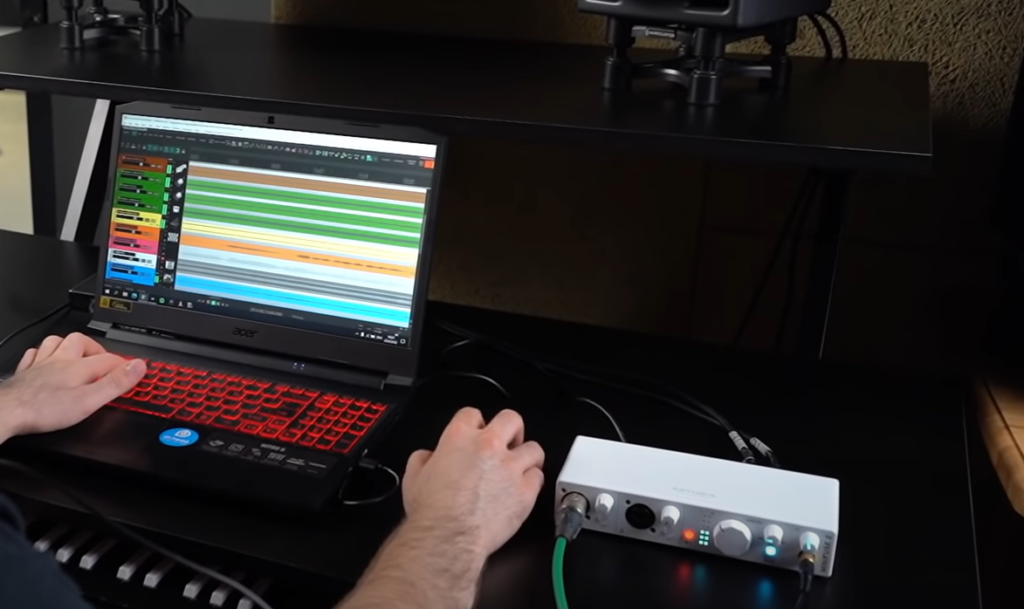
Now that we’ve answered the question of “what is a ghostwriter?”, let’s move on to some common questions about becoming one.[4]
An Intro To Music Ghostwriting
Have you ever wondered how some of your favorite songs come to be? Many times, professional songwriters will pen hits for other artists – and they’re called ghostwriters. As a ghostwriter, you can make a great living crafting lyrics and melodies for other people to sing. But how do you get started in this business?[3]
Specialized organizations
Specialized organizations. can help you get in touch with clients.
If you’re interested in becoming a ghostwriter for music, one of the best ways to get started is by joining a specialized organization. These organizations can put you in touch with potential clients and help you learn more about the industry.
The International Association of Professional Ghostwriters is one such organization.
Members of the WAPGW have access to a variety of resources, including a directory of clients and an online forum where they can share tips and advice.
Another helpful organization is Music Ghostwriters International. MGI is a community of music ghostwriters that offers its members a variety of resources, including a directory of clients, an online forum, and a monthly newsletter.[1]
Both the IAPGW and MGI offer annual membership fees. However, these organizations are well worth the investment if you’re serious about becoming a ghostwriter for music.
Record and market yourself
In order to get yourself out there as a ghostwriter, you’ll need some good recordings of your work. You can either produce these yourself or hire a producer. Make sure that your recordings are of high quality and showcase your skills as a writer and performer.
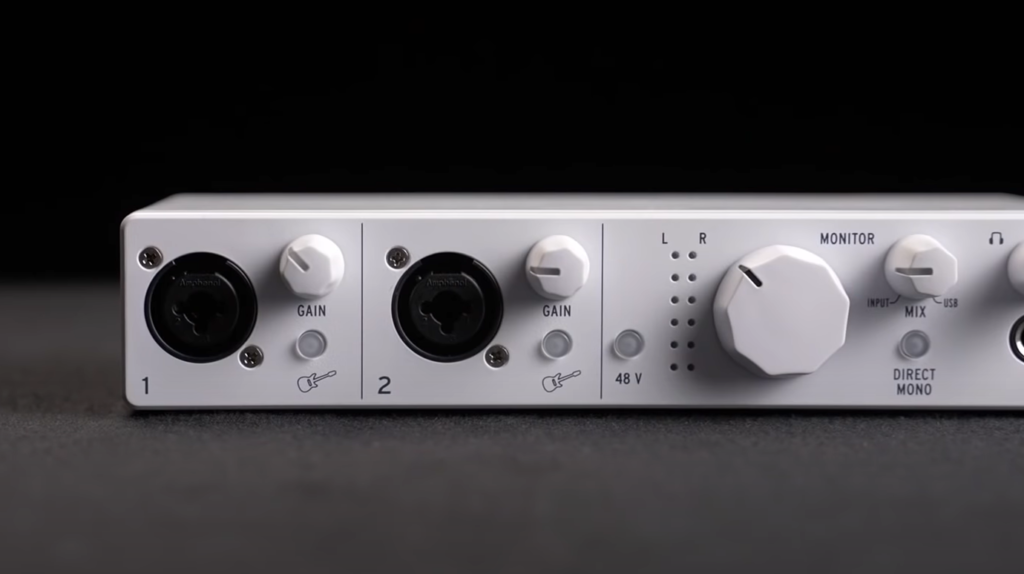
Once you have some good recordings, create a website or online portfolio where potential clients can listen to your work. Be sure to include information about your rates and availability on your website. You can also promote yourself through social media platforms like Twitter and Facebook.
If you’re serious about becoming a ghostwriter for music, then you need to start marketing yourself early on. The sooner you get started, the better chance you have of landing clients and making a name for yourself.[1]
What about rappers?
Most of the artists who need ghostwriters are rappers. That’s because rapping is more about lyrical prowess and rhyme schemes than it is about melody or vocals. If you’re a rapper looking for a ghostwriter, your best bet is to find someone who’s already established in the rap community. There are a few ways to do this:
- Check out songwriting forums and websites. These are great places to find other songwriters who might be interested in working with you.
- Attend local open mics and showcases. This is a great way to meet other rappers and get your name out there.
- Search online for “ghostwriter” or “lyricist.” This will help you find people who are specifically looking for someone to write lyrics for them.
Once you’ve found a few potential ghostwriters, reach out to them and see if they’re interested in working with you. If so, send them some of your ideas or samples of your work so they can get an idea of your style. Once you’ve found someone who’s a good fit, it’s time to start writing![1]
Why become a ghostwriter
The biggest reason to become a ghostwriter is money. Top line writers can make thousands of dollars per song. And if you’re good, you can write a lot of songs. It’s not uncommon for successful writers to have hundreds of songs in their catalogs.
Another reason to become a ghostwriter is the exposure. By writing for other artists, you can get your name and music out there in front of new fans who might not have heard of you otherwise. And if they like what they hear, they’ll be more likely to check out your own music.
Finally, writing for other artists can be a great way to learn and grow as a writer. You’ll have the opportunity to try new things and see what works for other artists. You can also get feedback from artists and producers on your work, which can help you improve your own songwriting.[2]
Keep your inspiration queue full
You can’t be a good ghostwriter if you don’t have any ideas. That’s why it’s important to keep your inspiration queue full at all times. Fill it with anything that gets your creative juices flowing: other people’s songs, books, movies, art, etc. The more you have to draw from, the better off you’ll be.
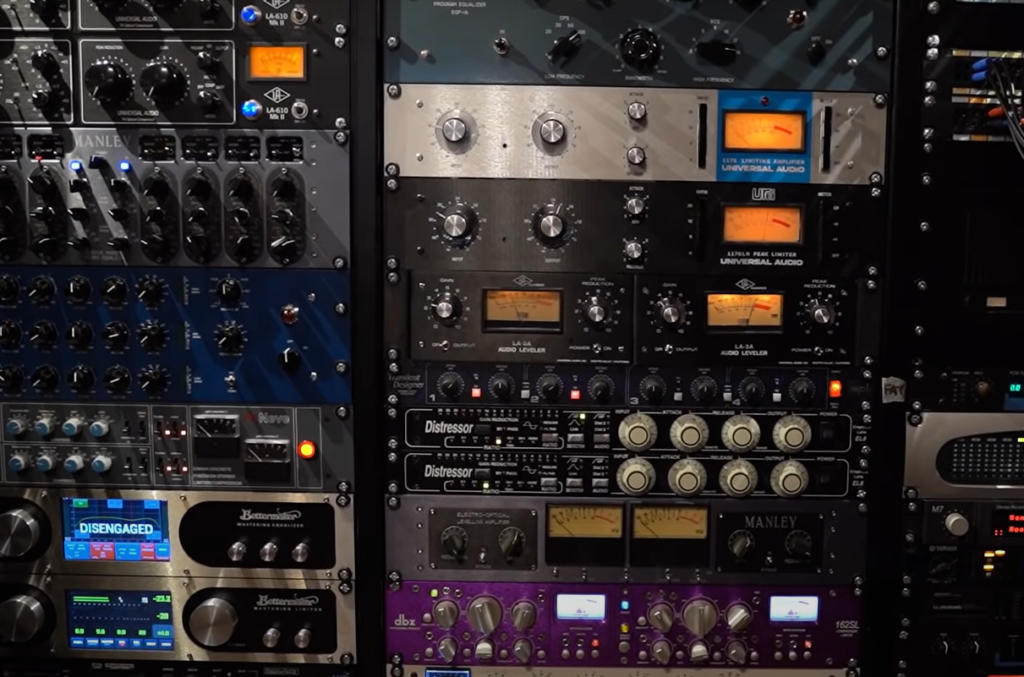
And when you do get an idea for a song, don’t hesitate to write it down or record it right away. The longer you wait, the harder it will be to remember what inspired you in the first place.[2]
Deliver on your promise to music artist you work with
As a ghostwriter, you will be working with music artists to create songs. It is important that you are able to deliver on your promises and meet the expectations of the artist. You should be able to write lyrics that are catchy and have a good flow. The melodies should be easy to remember and the overall song should be enjoyable to listen to.
If you can do all of these things, then you will be well on your way to becoming a successful ghostwriter for music. Remember, the most important thing is that you enjoy what you do and always strive to improve your craft. Ghostwriting can be a very rewarding experience, so don’t give up if it doesn’t come easy at first. With a little practice, you will be able to create songs that people will love.[2]
Take care of the practical details
Before you can start writing songs for other people, there are a few things you need to take care of. First, you need to have a basic understanding of the music industry and how it works.
Finally, you’ll need to be able to play at least one musical instrument. If you don’t already know how to do these things, don’t worry – there are plenty of resources out there that can help you learn.Once you’ve taken care of the practical details, it’s time to start thinking about what kind of songs you want to write. Do you want to write pop songs? Ballads? Hip-hop tracks? There’s no right or wrong answer here – it’s entirely up to you. Just make sure that you choose a genre that you’re passionate about and that you feel confident writing in.
Once you’ve decided on the type of songs you want to write, it’s time to start thinking about who you want to write them for. Do you want to write for a specific artist? A particular label? Or do you just want to sell your songs to anyone who will buy them? Again, there’s no right or wrong answer – it all comes down to what feels right for you.[2]
The Negatives Of Ghostwriting
While there are many positives to becoming a ghostwriter, it’s important to be aware of the potential negatives too. Here are some of the cons:
- You may not get credit for your work. This is the most common downside and the reason why many people shy away from ghostwriting altogether. If you’re not comfortable with someone else taking all the credit, then this isn’t the gig for you.
- It can be challenging to remain creative. When you’re constantly churning out songs for other people, it can be easy to lose sight of your own creativity in the process. You have to be very disciplined and intentional about setting aside time for your own projects if you want to avoid burning out.
- The pay can be variable. This is another downside that is often cited by ghostwriters. While some people are able to command a high rate for their services, others may find that they’re working for very little money. It all depends on your negotiation skills and the market you’re in.[3]
Benefit of ghostwriting
If you’re a creative person with a passion for music, then becoming a ghostwriter for music may be a great option for you. Ghostwriting is a great way to make money in the music industry, and it can also help you build your portfolio and credibility as a writer.
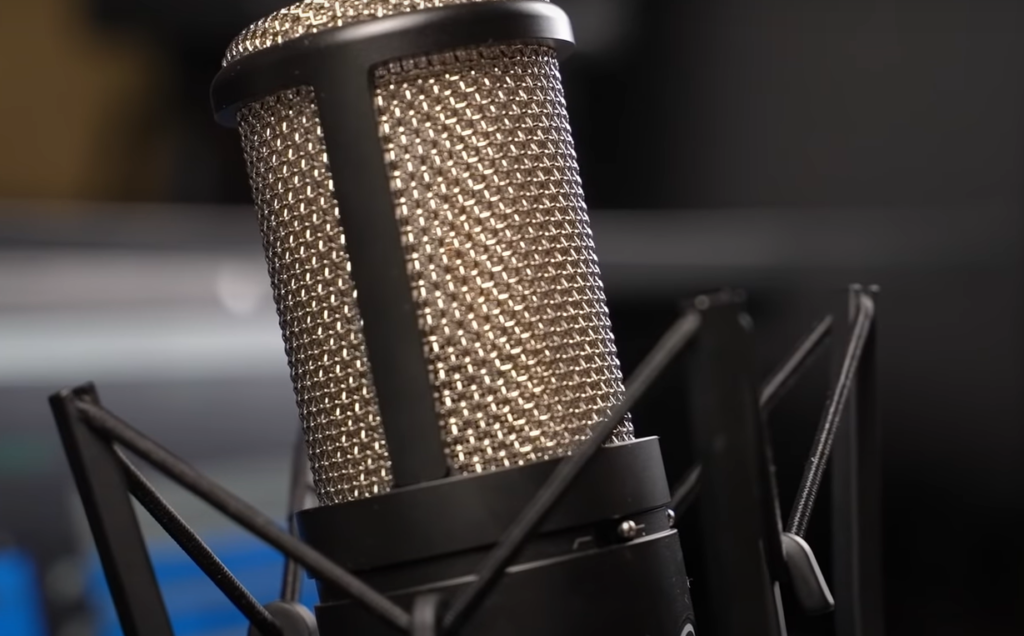
There are many benefits to ghostwriting in the music industry. For one, it’s a great way to make money.
Another benefit of ghostwriting in the music industry is that it can help you build your portfolio and credibility as a writer. If you’re able to land some high-profile clients, then your name will start to get out there and you’ll be able to build a strong reputation as a ghostwriter.[3]
Ghostwriting: Remember The Basics
The first rule of ghostwriting is simple: don’t get too attached to your work. It’s not uncommon for artists to change their mind about a song or lyric, and as a ghostwriter, you need to be able to let go of your original vision and be open to new ideas. This can be hard, but it’s important to remember that the artist is the one who will ultimately be performing the song, so it’s up to them to decide what they want it to sound like.
Another important thing to keep in mind is that you are essentially working for hire, which means that the artist owns the copyright to anything you write for them. This is why it’s so important to get a contract in place before you start writing – it will protect your rights and ensure that you get paid for your work.
Ghostwriting can be a great way to break into the music industry, but it’s important to remember the basics. Be open to change, get everything in writing, and don’t get too attached to your work – it’s not yours, after all. With these tips in mind, you’re well on your way to becoming a successful ghostwriter for music.[3]
Are Your Music Skills Needed?
Before you take the plunge into becoming a ghostwriter for music, it’s important to consider if your skills are actually needed. In order to be a successful ghostwriter, you don’t need to be the next Beethoven – but you should at least have a firm grasp on musical theory and composition.
It can also be helpful to have some experience playing an instrument, as this will give you a better understanding of how music is put together. However, this isn’t a requirement – many successful ghostwriters don’t play any instruments at all. As long as you have a good ear for music and know how to write catchy melodies, you should be able to find success as a ghostwriter.
Becoming a Ghostwriter for Music: Pathways and Considerations
If you aspire to be a ghostwriter for music, here’s a comparison of the essential aspects you need to consider, including the skills required, networking opportunities, and income potential.
| Pathways | Skills Required | Networking | Income Potential |
|---|---|---|---|
| Educational Background | Strong songwriting skills, music theory knowledge, and proficiency in a specific genre or style. | Music industry connections, collaborations with established artists, and joining songwriter associations. | Potential to earn substantial royalties and fees, but income can vary widely. |
| Self-Taught | Demonstrable songwriting talent, creativity, and adaptability to various musical genres. | Online music communities, networking at local gigs, and building a portfolio of original compositions. | Income may start modestly but can grow significantly with experience and recognition. |
| Industry Insider | Extensive experience in the music industry, deep knowledge of trends, and a reputation for delivering hit songs. | Existing industry connections, collaborations with major artists, and involvement in high-profile projects. | Potential for substantial income, including royalties, advances, and project fees. |
Explanation of the Table:
- Pathways: Outlines different pathways to becoming a music ghostwriter.
- Skills Required: Describes the essential skills and knowledge needed for success in each pathway.
- Networking: Highlights networking opportunities and strategies for connecting with the music industry.
- Income Potential: Discusses the income potential in terms of royalties, fees, and career growth.
Becoming a ghostwriter for music offers multiple pathways, each requiring specific skills and networking strategies:
Educational Background: A formal music education can provide a strong foundation in songwriting and music theory. Networking through industry connections and songwriter associations can open doors to opportunities for income through royalties and fees.
Self-Taught: Self-taught songwriters must showcase their talent through networking within online music communities and local music scenes. Starting income might be modest, but it can grow with experience.
Industry Insider: Those with extensive industry experience can leverage their connections and reputation. The income potential is substantial, with opportunities for royalties, advances, and high-paying projects.
Each pathway has its unique challenges and rewards, making it crucial to choose the one that aligns with your skills and career goals as you pursue a career as a music ghostwriter.
FAQ
How much do song ghost writers make?
This is a difficult question to answer as there are many variables that come into play. It depends on the length of the song, the complexity of the lyrics, and the experience of the ghostwriter. Generally speaking, songwriters can expect to make between $0.25 and $0.75 per word.
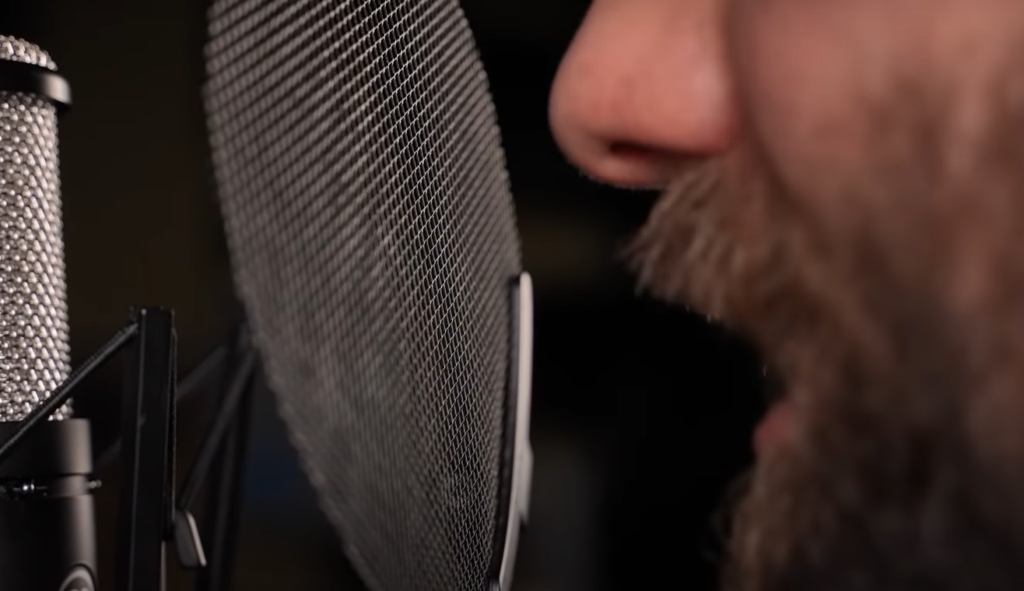
As a general rule, shorter songs will pay on the lower end of this scale while longer songs or those with more complex lyrics will pay on the higher end. Experienced ghostwriters will also be able to command a higher rate.
Who was Drake’s ghostwriter?
This is a question that has been on the minds of many Drake fans for years. If you’re not familiar with the term “ghostwriter,” it refers to someone who writes lyrics or verses for another artist who then takes credit for them. In other words, Drake’s ghostwriter is the person responsible for writing some of his biggest hits!
So, who was Drake’s ghostwriter? Unfortunately, this is a question that may never be fully answered. While there have been some rumors and speculation over the years, no one has ever come forward to definitively say that they wrote any of Drake’s songs.
Has Eminem ever had a ghostwriter?
The answer is yes – Eminem has had ghostwriters in the past. In fact, one of his most famous songs, “Lose Yourself,” was co-written by a man named Luis Resto. However, it’s important to note that not all ghostwriters are created equal. Some are better than others, and some are more expensive than others.
Does Cardi B use a ghostwriter?
The answer to this question is a little complicated. Cardi B has been very open about the fact that she uses ghostwriters for some of her songs. However, she has also said that she writes her own lyrics for some of her songs as well. So, it really depends on the song.
How much do beginner ghostwriters make?
As a beginner, you can expect to make around $20-$30 per hour. However, as you gain more experience, your rate will increase. The average rate for a ghostwriter is $50-$100 per hour.
Is being a ghostwriter worth it?
A resounding YES.
The monetary compensation is great, but that’s not all. As a ghostwriter, you also get the satisfaction of seeing your name in lights…sort of. You get to see your words come to life and hear them sung by some of the best vocalists in the world. And trust me, that feeling is priceless.
What skills are essential to become a successful music ghostwriter?
To excel as a music ghostwriter, you need strong songwriting skills, a deep understanding of music theory, the ability to adapt to various genres, and effective communication skills to collaborate with artists.
How can I build a portfolio as a music ghostwriter?
Start by writing and composing your own songs or collaborating with local artists to build a portfolio. Consider sharing your work on platforms like SoundCloud, YouTube, or music forums to showcase your talent.
What is the process for networking with musicians and artists as a ghostwriter?
Networking is crucial. Attend music events, join industry groups, and use social media platforms to connect with musicians, producers, and artists. Building relationships can lead to opportunities.
Are there music ghostwriting agencies or platforms I can join?
Yes, some agencies and platforms specialize in connecting ghostwriters with artists. Websites like SoundBetter and Upwork can be great places to find music ghostwriting gigs.
How can I protect my rights and ensure fair compensation as a music ghostwriter?
To protect your rights, create clear contracts that outline your compensation, royalties, and ownership of the songs. Consulting with a legal professional experienced in music contracts is advisable.
What are some effective strategies for marketing myself as a music ghostwriter?
Promote your services through a professional website or social media profiles. Share samples of your work, client testimonials, and engage with your target audience to establish your brand.
Should I focus on a specific music genre as a ghostwriter, or is versatility better?
Versatility can be an asset, but specializing in a specific genre can also make you more appealing to artists looking for a particular style. It depends on your interests and strengths.
How do I handle creative differences with artists when ghostwriting music?
Communication is key. Discuss expectations and creative preferences with the artist upfront. Be open to feedback and willing to make adjustments to ensure a collaborative and successful project.
What resources and courses are available to improve my music ghostwriting skills?
Consider enrolling in songwriting courses, music production classes, or workshops to enhance your skills. There are also many books and online resources dedicated to songwriting techniques.
Are there any industry associations or organizations for music ghostwriters?
While there may not be specific organizations for music ghostwriters, joining music industry associations like ASCAP or BMI can provide valuable networking opportunities and resources.
Useful Video: How To Become A Ghostwriter! | Start Your Career TODAY!
Conclusion
Now that you know how to become a ghostwriter for music, it’s time to get out there and start writing! Keep in mind that the best way to improve your skills is by practice, so don’t be discouraged if your first few songs aren’t hits. The more you write, the better you’ll become at crafting catchy melodies and lyrics that resonate with listeners.
If you’re looking for more guidance on how to break into the music industry, check out our other articles on songwriting and music production. And if you have any questions about ghostwriting, feel free to leave a comment below and we’ll be happy to help!
References:
- https://thereviewsarein.com/2019/11/16/how-to-become-a-ghostwriter-in-the-music-industry/#
- https://www.musicindustryhowto.com/how-to-become-a-ghostwriter-for-singers-and-rappers-in-the-music-industry/
- https://blog.boostcollective.ca/how-to-start-your-ghostwriter-music-career
- https://www.omarimc.com/how-to-become-a-ghostwriter/

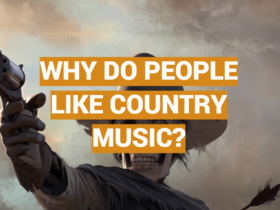


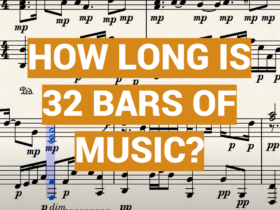
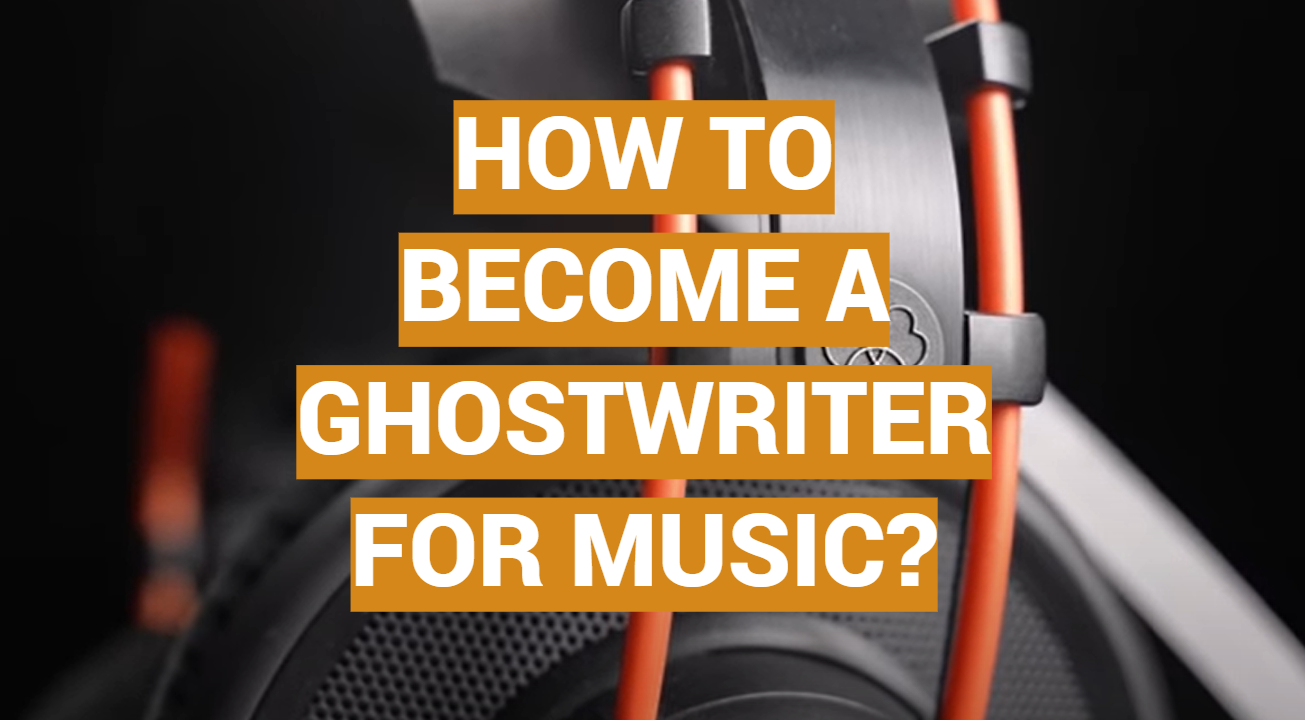




Leave a Reply